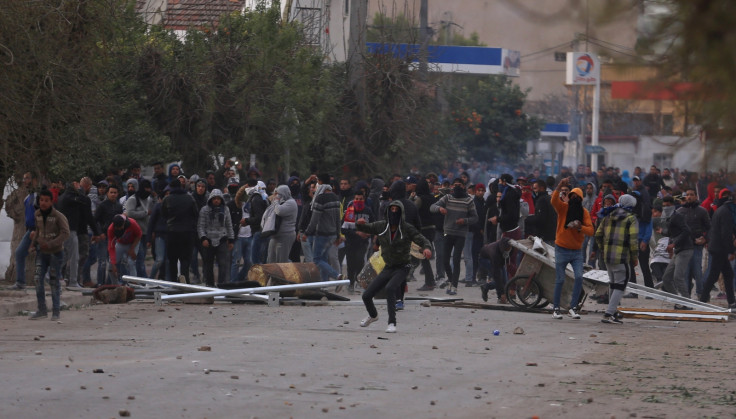Is Tunisia embarking on another Arab Spring as protests rage on?
Anti-government rallies to protest against severe austerity measures and economic hardship have been swelling across the country.
Tunisia, often regarded as the birthplace of the Arab Spring movement, is witnessing a series of demonstrations in multiple cities with frustrated people taking to the streets to protest against the government's austerity measures.
With the common man desperate to crawl out of economic hardship, protests in Tunisia – relatively a stable country in the middle of a volatile region – were held for the third consecutive night despite warnings from the government. Besides capital Tunis, at least four other towns witnessed rallies.
Police and military forces have been deployed in several cities to prevent demonstrations turning violent. No less than 200 people have been detained by security forces and at least one man has died after clashes broke out. Protesters have blamed the police for the man's death but security forces reject those claims.
Peaceful demonstrations turned violent on Monday and Tuesday (8 and 9 January) as protesters began to attack police. In response, teargas was fired by security personnel.
State buildings and government vehicles have also been torched. About 50 police personnel have been wounded while there have also been reports of widespread looting.
What started as a small demonstration against the government on Sunday, 7 January, over the steep price rise of staple goods, is now gradually ballooning into larger protests. The campaign began after the administration introduced a new set of taxes and hiked social contributions – mandated by international creditors – as part of the budget for the new year.
"What happened is violence that we cannot accept. The state will remain steadfast," warned Tunisian Prime Minister Youssef Chahed, while his interior ministry has issued similar threats of a crackdown. Activists have predictably called for the return of the 2011 revolution in their attempt to galvanise protests against the administration.
Tunisia's vital tourism sector has not yet bounced back after the catastrophic terror attacks in Sousse and Tunis in 2015, while the new budget, which raises value-added tax (VAT) on basic products and services, is likely to hit the less-privileged the hardest.
"The taxes do not affect consumers' shopping baskets regarding foodstuffs and other things because these are not under VAT," said Finance Minister Ridha Chalghoum. "Among the achievements of democracy is the ability to organise and protest. But one must also work to make the Tunisian economy healthy. An economy in which the growth which has begun in 2017 can be consolidated."
Worryingly, more protests have been called for on Friday, 12 January, just days before the seventh anniversary of what has come to be known as the Arab Spring movement – which began in 2011 and rocked multiple countries in the Middle East and North Africa.
After the movement, however, nine administrations during the last seven years in Tunisia have failed to mitigate the plaguing high unemployment rates and economic distress of the common man.
Opposition forces have called for halting the implementation of the 2018 budget and rolling back on austerity measures by the government and vowed to escalate the rallies in the coming days.
"The Front is calling all Tunisian people to go out on the streets for peaceful protests countrywide for one clear goal, which is to bring down these actions that destroyed the Tunisian country and its people," said Hamma Hammami, the leader of the Popular Front Party, which is the country's main opposition party.























